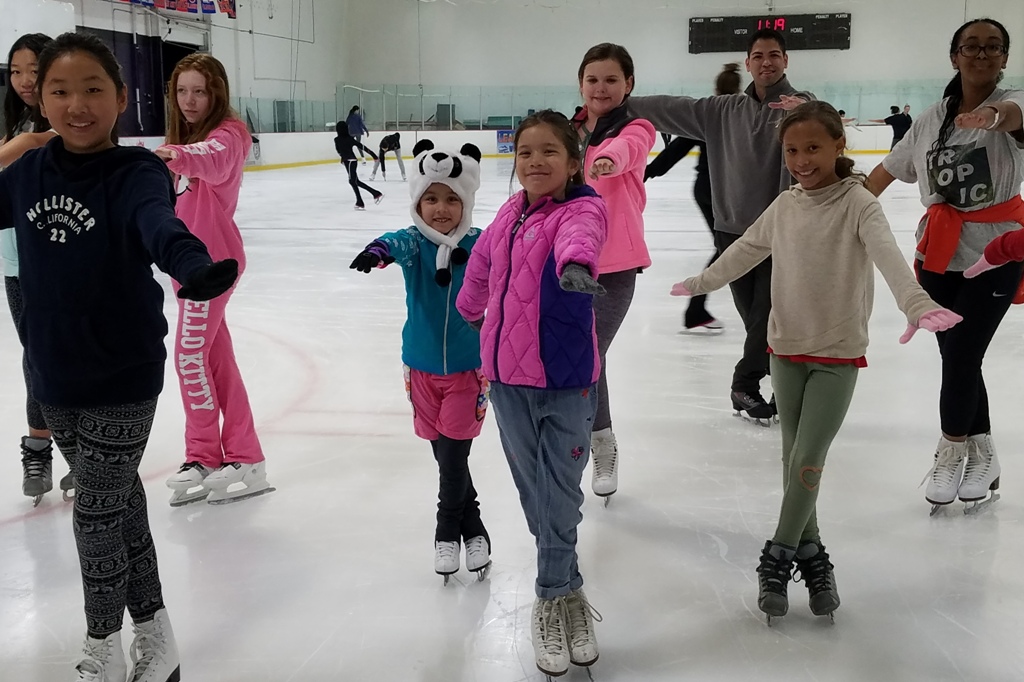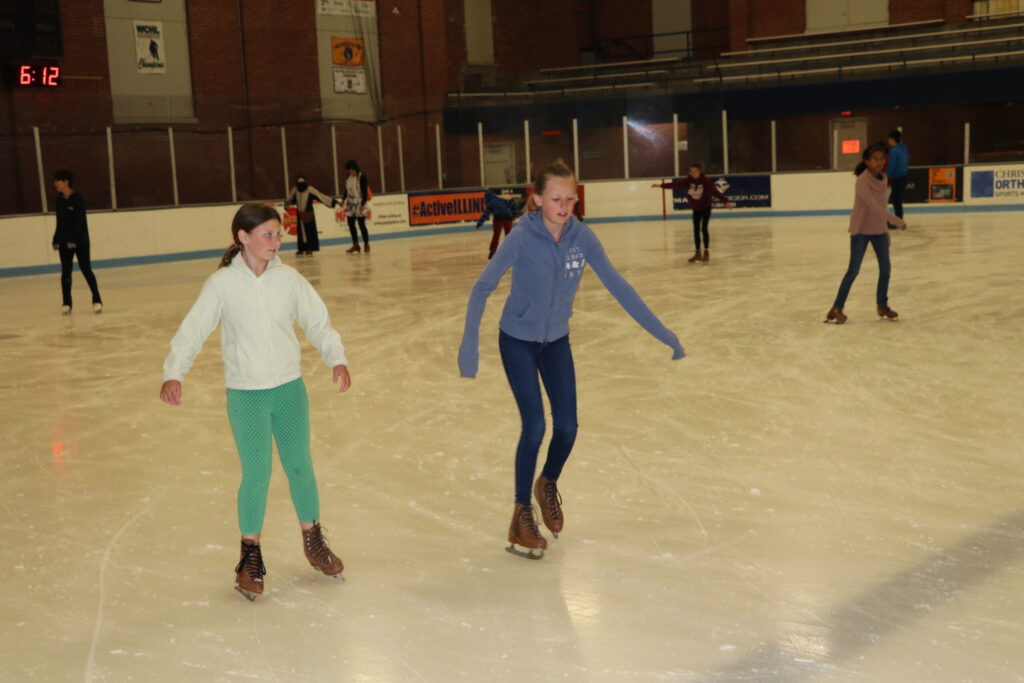Ice skating classes and lessons are a great way to learn and improve your ice skating skills. Ice skating is a fun and challenging activity that can be enjoyed by people of all ages and skill levels. Whether you are a beginner or an experienced skater, there are classes available to help you improve your skills and enjoy the sport even more.
Where Ice Skating classes are offered, and who offers them
Ice skating classes are typically offered at local ice rinks and skating centers. These classes are designed for people of all ages and skill levels, and they typically offer a structured program of instruction that includes both on-ice and off-ice activities. Classes may be divided by age or skill level and may cover a range of topics, such as basic skating techniques, figure skating moves, ice dancing, and ice hockey skills.
Ice skating lessons are typically offered by private instructors or coaches. These lessons are typically more personalized than group classes and are tailored to the specific needs and skill level of the individual skater. Private lessons can be a great way to focus on specific areas of improvement, such as jumps, spins, or footwork, and to receive one-on-one feedback and instruction from an experienced coach.
Whether you choose to take group classes or private lessons, ice skating is a great way to improve your balance, coordination, and cardiovascular fitness while having fun and enjoying the beauty of winter sports.

Examples of Ice Skating Classes and Lessons
Here are some examples of skating classes and lessons that you might find at your local skating center:
Basic skating classes: These classes are designed for beginners who are just learning to skate. They typically cover the basics of skating, including proper stance and balance, forward and backward skating, stopping, and turning.
Figure skating classes: Figure skating classes are designed for skaters who want to learn jumps, spins, footwork, and other elements of figure skating. These classes may be divided by skill level and may include both on-ice and off-ice training.
Ice dancing classes: Ice dancing classes are designed for skaters who want to learn partner dances on the ice. These classes typically cover basic dance patterns, techniques, and choreography.
Ice hockey classes: Ice hockey classes are designed for players who want to improve their skills on the ice. These classes may cover skating, stickhandling, passing, shooting, and game strategy.
Off-ice training: Many centers also offer off-ice training, which can include strength training, flexibility training, and other exercises that can improve skating performance. These classes can be a great complement to on-ice training.
Private lessons: Private lessons are typically offered by experienced coaches or instructors, and are tailored to the individual skater’s needs and goals. Private lessons can be a great way to receive personalized feedback and instruction and to work on specific areas of improvement.
Other examples include:
Synchronized skating classes: Synchronized skating is a team sport that involves a group of skaters performing choreographed routines together. Synchronized skating classes are designed for skaters who want to learn the techniques and skills required for this sport.
Hockey skills clinics: Hockey skills clinics are intensive training sessions that focus on specific skills, such as shooting, stickhandling, or goaltending. These clinics are typically led by experienced hockey coaches and may be offered as group classes or private lessons.
Learn-to-skate camps: Learn-to-skate camps are multi-day programs that provide intensive training in skating skills. These camps may include both on-ice and off-ice training, as well as other activities such as games, crafts, and social events.
Performance workshops: Performance workshops are classes that help skaters develop their performance skills, such as musical interpretation, expression, and choreography. These classes are designed for skaters who want to improve their presentation skills and perform in shows or competitions.
Competitive skating training: Competitive skating training is designed for skaters who want to compete in figure skating or ice dancing competitions. These programs typically include intensive training in skating skills, choreography, and performance, as well as preparation for competitions.
Adult skating classes: Adult skating classes are designed for skaters who are 18 years or older and want to learn or improve their skating skills in a supportive and social environment. These classes may cover basic skating skills, figure skating, or ice dancing.

Benefits of taking skating classes
Physical fitness: Ice skating is a great form of exercise that can help improve balance, coordination, cardiovascular health, and muscular strength.
Confidence building: As you learn new skills and become more comfortable on the ice, you may experience a boost in confidence and self-esteem.
Stress relief: Skating can be a fun and relaxing activity that allows you to unwind and forget about your worries.
Improved mental health: Skating can improve your mood and reduce symptoms of depression and anxiety.
Coordination and balance: This sport requires balance and coordination, which can improve these skills over time.
Discipline and perseverance: Ice skating requires discipline and perseverance to master new skills, which can translate to other areas of life.
Overall, ice skating can provide physical, social, and mental health benefits while teaching valuable skills that can be applied in many areas of life.


